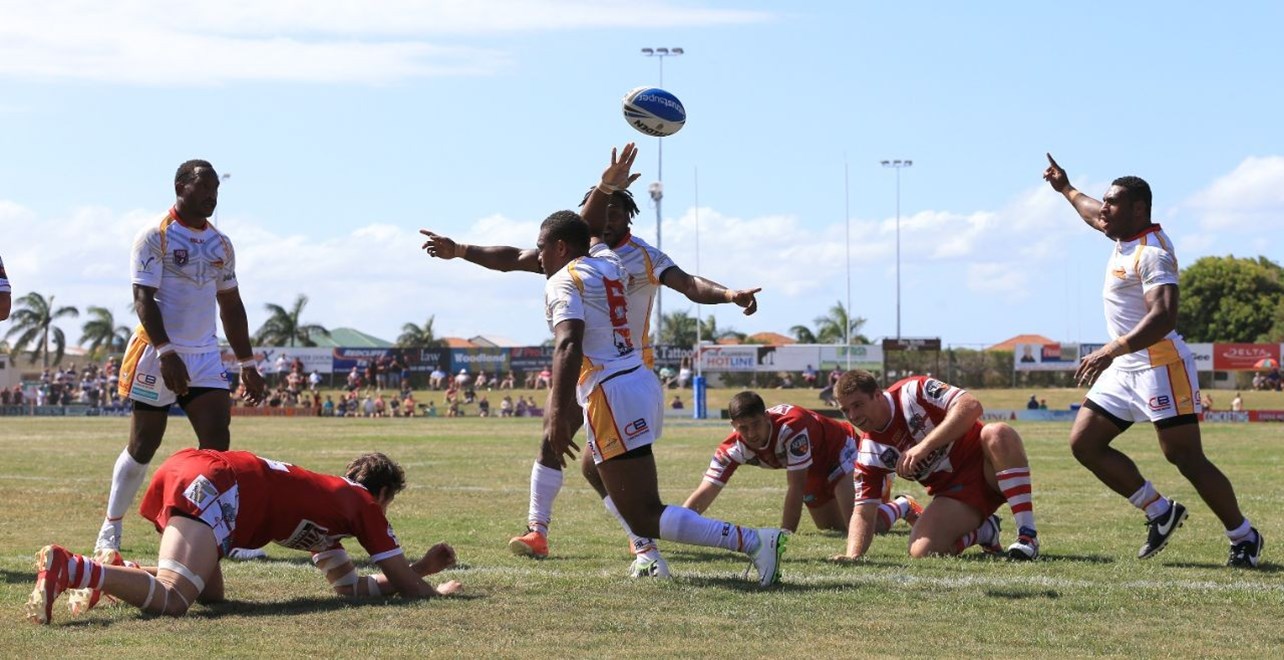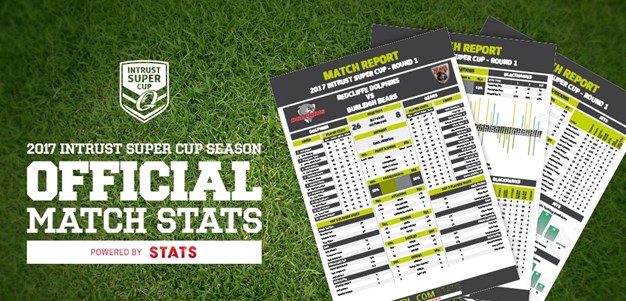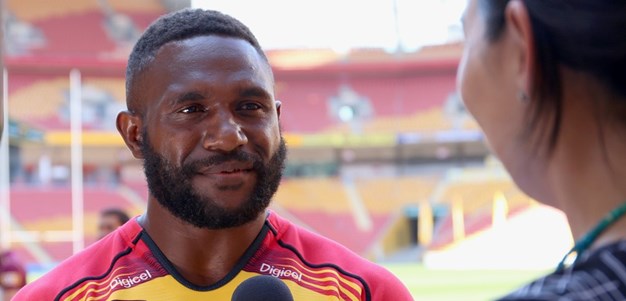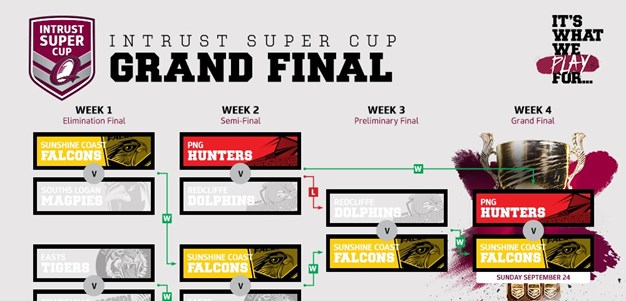

Twenty years after the Port Moresby Vipers were forced out of the Queensland Cup, the man who was instrumental in their admission believes Papua New Guinea’s dream of one day having its own NRL team is no longer in the realm of fantasy.
The PNG Hunters will provide one of the highlights of NRL grand final day when they take on the Penrith Panthers in the Intrust Super Championship at 2.40pm (QLD time) on Sunday, but their journey to reach such a stage stretches back more than three decades.
From 1986 until 1989, the Vipers played in the mid-week Panasonic Cup and hosted games in Goroka and Moresby; but their bid to be a full-time presence in Australia's premier competitions gathered genuine momentum in the mid-1990s.
Under the stewardship of John McDonald and Ross Livermore, the Queensland Rugby League ambitiously introduced a statewide competition in 1996 and when a PNG consortium expressed interest in joining, the QRL eagerly ventured across international waters.
Playing as the Port Moresby Vipers, they won eight of 15 games in 1996 to finish 10th in the 16-team competition and ran eighth a year later, before the after-effects of the Super League war and associated financial fallout meant that they could not continue in 1998.
As eight million Papua New Guineans continue to celebrate the Hunters' maiden Intrust Super Cup title just four years after their inception, Michael Pease told NRL.com of his disappointment that the wait had to be so long.
“From my point of view I thought it was a tragedy,” said Pease, who was QRL Administration Manager at the time, of the Vipers leaving the Queensland Cup after just two seasons.
“To lose that was disappointing for everybody, but the greatest disappointment was that it took so long to get them back.
“I think we were hoping it was only going to take a couple of years for them to come back, but it certainly took a long time to get them ready and get them back.
“All credit to them now though because they have certainly attacked it with the professionalism that is needed and that is reflected in their performance.
“There was certainly the thought then that PNG could go into that national competition.
“I'm not saying that's going to happen any time soon, but if they keep building and being as professional as they have been the last four years, then everything is in front of them.”
All you need to know about the 2017 Intrust Super Championship is here
The origins of the Hunters' inclusion in the Intrust Super Cup began with a desire to have a team in the NRL, but by 2011 and at the urging of inaugural Hunters CEO Brad Tassell, they changed their course to a pathway via the QRL.
With the memories of tear gas being deployed to disperse overly-zealous crowds at previous visits by the Prime Minister's XIII relatively fresh in their minds; health and safety fears were the major hurdles that the QRL had to first overcome to win the support of existing clubs for the Hunters to be awarded entry.
But as he watched Willie Minoga dive over to score the match-winning try in last Sunday's grand final 90 seconds from full-time, former General Manager of Major Competitions Jamie O'Connor reflected on the journey the Hunters had travelled.
O'Connor joined the QRL midway through 2011 as the possibility of the Hunters' inclusion gathered momentum and said the passion of the people behind the bid ensured a difficult process never became impossible.
“Most of the time we figured that it was going to be hard, but I don't know about it ever being too hard,” O'Connor said of ushering in a new era of PNG inclusion.
“There was a significant amount of risk. There was the unknown of the logistics in terms of getting teams over there and how safe it was going to be, standard of facilities and any health risks.
“When you added all those on top of each other, always in the back of your mind you were thinking that this might not actually come to fruition. There were some significant difficulties there.
“Whilst rugby league is a business, it's a business built on emotion and that was on complete display on Sunday.
“When they scored, it was nice to know that you had played some small part in being involved in the process that saw them get entry into the competition and that what we had as a vision was exactly what played out.
“That typified their whole process. They never gave up on the bid process, they always felt that it was the right thing and they pushed hard and hung in there and kept doing whatever they needed to do to get access to the competition and they did the same thing to win a premiership.
“I saw a tweet after the game saying that three Papua New Guinean women were seen crying with joy as they were leaving the stadium. That's what rugby league means to PNG.
“People such as Brad Tassell, Stan Joyce from SP Lager, former sports minister Justin Tkatchenko and PNGRFL chairman Sandis Tsaka were all instrumental in getting the Hunters up and running, but more than anything it was the people.
“The eight million people that live over there were absolutely crying out for an opportunity to show what their country could do on the rugby league stage.”
After being mobbed by thousands of fans upon their arrival back to Moresby on Monday, Hunters coach Michael Marum will bring his players back to Australia to play in front of the biggest crowd any of them have ever witnessed.
Win or lose on Sunday, Marum knows better than anyone that what the Hunters have achieved in 2017 will change the game in PNG forever.
“These young kids will be looking up now and one day they will be a Hunter or a Kumul player, so it's just going to inspire everyone else up there to come and be a part of such a competition like this,” Marum said.
“A win is not just only for the team, but the country is celebrating right now so it's big.
“It's going to change the whole game up there at home.”





